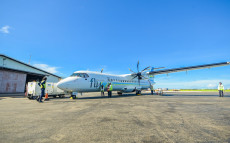- pathfindersAI
- Job Profile
Traffic Technicians
Summary
Traffic Technicians: Navigators of Urban Flow
What They Do
In an era of rapid urbanization and escalating concern for sustainable transportation, Traffic Technicians emerge as unsung heroes in the realm of civil engineering and urban planning. These adept professionals specialize in ensuring the smooth flow of vehicular and pedestrian traffic within our cities. They are instrumental in reducing congestion, minimizing accident risks, and enhancing overall transportation efficiency. By meticulously analyzing traffic patterns, they contribute to the design and optimization of traffic control systems, ensuring seamless travel experiences for all.
Job Responsibilities
The role of a Traffic Technician is multifaceted and demands both analytical prowess and hands-on operational skills. Their primary responsibility is to collect data through various methods such as traffic counts, speed studies, and travel time surveys. This data serves as the foundation for understanding traffic behaviors and patterns. Armed with this information, Traffic Technicians engage in designing and deploying traffic control devices such as signals, signs, and pavement markings. They collaborate closely with traffic engineers to implement and refine traffic management plans, ensuring compliance with local, state, and federal regulations. Additionally, they often conduct field inspections to ensure that traffic control devices are correctly implemented and functioning as intended.
Essential Skills
To thrive as a Traffic Technician, one must possess a robust set of skills that blend technical acumen with practical know-how. Analytical abilities are paramount, as the job requires interpreting complex data sets to extract actionable insights. Proficiency in specialized software tools for traffic analysis and simulation is also crucial. Effective communication skills are essential, given the collaborative nature of the work, often involving various stakeholders such as engineers, urban planners, and public officials. Attention to detail, problem-solving capabilities, and a comprehensive understanding of transportation laws and guidelines further equip Traffic Technicians to excel in their roles.
Educational Pathways
Embarking on a career as a Traffic Technician typically begins with acquiring a solid educational foundation. An associate degree in Civil Engineering Technology, Transportation Engineering Technology, or a related field is often the minimum requirement. Many community and state colleges offer specialized programs geared toward this profession. Coursework usually encompasses subjects such as traffic engineering, transportation planning, and computer-aided design (CAD) software. Aspiring Traffic Technicians may also benefit from internships or cooperative education experiences, providing hands-on exposure to real-world traffic operations and projects. For those aiming to advance, pursuing certifications from professional organizations, such as the Transportation Professional Certification Board (TPCB), can enhance job prospects and professional standing.
Career Prospects
The demand for Traffic Technicians is on a steady rise, driven by the continuous expansion and modernization of urban infrastructure. Career opportunities are abundant in both the public and private sectors, with positions available in municipal and state government agencies, engineering consulting firms, and transportation planning organizations. Entry-level positions often serve as a springboard to more advanced roles, such as Traffic Engineer or Transportation Planner, with further education and experience. According to industry projections, the employment outlook for Traffic Technicians is promising, with growth opportunities fueled by ongoing urban development and the increasing emphasis on sustainable transportation solutions.
Conclusion
In conclusion, Traffic Technicians play a pivotal role in sculpting the arteries of our urban landscapes. Their expertise in managing and optimizing traffic flow ensures safer and more efficient transportation systems. Through a blend of data-driven analysis, technical skill, and collaborative effort, they address the complex challenges of modern urban mobility. For those intrigued by the intersection of technology, engineering, and urban planning, a career as a Traffic Technician offers a rewarding and impactful pathway, contributing significantly to the betterment of our cities and the quality of life of their inhabitants.
Video
Compensation
| State | Median Salary | Median Hourly | Positions |
|---|---|---|---|
| AL | 41,520 | 19.96 | 140 |
| AZ | 59,680 | 28.69 | 260 |
| CA | 66,460 | 31.95 | 500 |
| CO | 62,080 | 29.85 | 40 |
| CT | 46,460 | 22.34 | 50 |
| FL | 47,720 | 22.94 | 650 |
| GA | 51,170 | 24.60 | 260 |
| IN | 48,090 | 23.12 | 70 |
| IA | 67,960 | 32.67 | 40 |
| KS | 36,270 | 17.44 | 180 |
| LA | 36,070 | 17.34 | 110 |
| MD | 54,230 | 26.07 | 150 |
| MA | 70,860 | 34.07 | 50 |
| MI | 37,990 | 18.27 | 150 |
| MN | 70,910 | 34.09 | 50 |
| MS | 30,400 | 14.61 | 40 |
| MO | 50,790 | 24.42 | 240 |
| NE | 65,220 | 31.36 | 60 |
| NV | 51,080 | 24.56 | 120 |
| NJ | 59,580 | 28.65 | 150 |
| NM | 44,270 | 21.29 | 100 |
| NY | 58,990 | 28.36 | 1,640 |
| NC | 43,960 | 21.13 | 270 |
| OH | 63,360 | 30.46 | 110 |
| OK | 45,560 | 21.91 | 60 |
| OR | 60,790 | 29.23 | 50 |
| PA | 64,650 | 31.08 | 110 |
| SC | 45,610 | 21.93 | 40 |
| TN | 54,190 | 26.05 | 430 |
| TX | 47,380 | 22.78 | 610 |
| UT | 58,270 | 28.01 | 60 |
| VA | 59,370 | 28.54 | 140 |
| WA | 76,740 | 36.90 | 50 |
| WV | 48,190 | 23.17 | 80 |
| WI | 60,400 | 29.04 | 50 |
| WY | 53,400 | 25.67 | 30 |
Similar Occupations
In this area you will find other occupations that are close to the one you were viewing in tasks, knowledge and work environment. If the primary job profile you are viewing isn't quite to your liking, take a look around and see what else is available.
Basic and Premium Accounts have more alternative occupations available than the Free account.

Air Traffic Controllers - 53-2021.00
Air Traffic Controllers are responsible for coordinating the safe, orderly, and efficient movement of aircraft both in the air and on the ground. They monitor and direct aircraft, provide pilots with critical information, and ensure all flights adhere to established flight plans and regulations to avoid collisions and delays.
-
$137,380/yr
Median Pay -
22,310
Number of Jobs

Aviation Inspectors - 53-6051.01
Aviation Inspectors ensure the safety and compliance of aircraft by examining engines, instruments, and other systems, conducting pre-flight and post-flight inspections, and verifying that maintenance and repair procedures meet regulatory standards. They also review maintenance logs and repair records to ensure that all required inspections and maintenance are completed correctly and on schedule.
-
$87,290/yr
Median Pay -
27,670
Number of Jobs